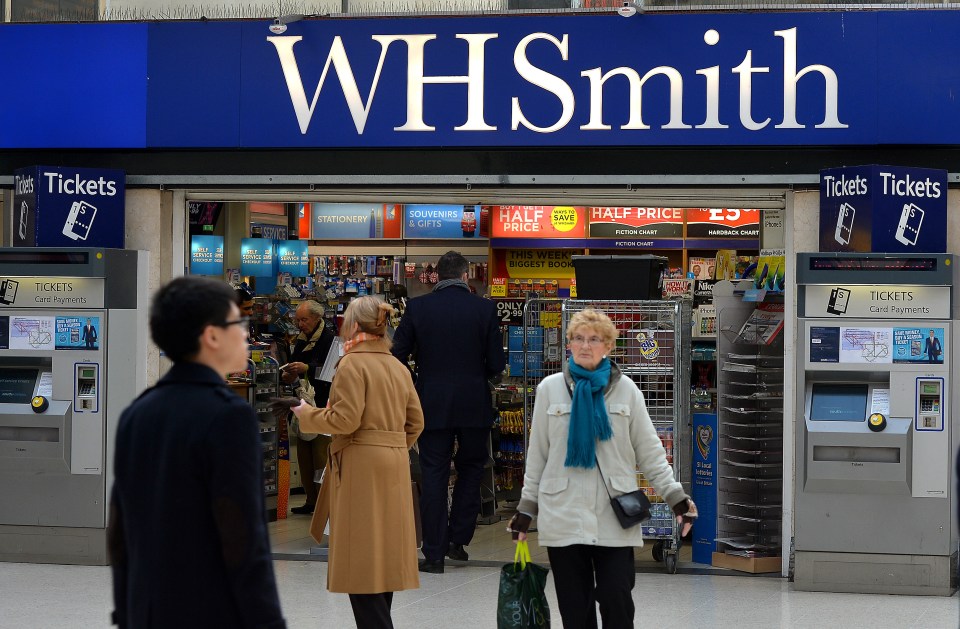WHSMITH is closing two more stores for good today ahead of the chain disappearing off high streets altogether.
The stores in Newport, Wales and Haverhill, Suffolk will be shutting up shop for the final time as the brand agreed to sell off nearly 500 of its high street stores.
Earlier this week, The Sun revealed the dates of 10 stores closing for good.
First to go were the stores in Halstead and Woolwich, which closed earlier this month.
Both held mega 75 per cent off sales, which saw shoppers getting their hands on whopping deals.
The other stores are closing later May or July.
These are all the dates we’ve had confirmed so far:
The Sun has approached WHSmith for comment.
Ten WHSmith stores have already closed this year.
They were:
- Halstead, Essex
- Woolwich, London
- Halesowen, West Midlands
- Diss, Norfolk
- Bournemouth Old Christchurch Road, Dorset
- Luton, Bedfordshire
- March, Cambridgeshire
- Basingstoke, Hampshire
- Long Eaton
- Newtown, Powys
- Winton branch in Bournemouth, Dorset
- Rhyl, Denbighshire
- Bolton, Greater Manchester
- Accrington, Lancashire
The end of WHSmith on the high street
The closures mark the beginning of the end of a 233-year stint on the high street for WHSmith.
Earlier this year, it put its entire high street estate up for sale as it focuses instead on its more profitable travel arm.
Its remaining 480 high street stores were snapped up by Hobbycraft owner Modella Capital last month as part of a £76million deal.
The move saved the jobs of roughly 5,000 employees.
However, the famous WHSmith name is set to be lost to the high street as the shops will be gradually rebranded to TGJones.
WHSmith stores will remain in airports, train stations and hospitals, and the retailer is planning to expand here.
The brand opened its first shop in 1792 in Little Grosvenor Street, London, later becoming the UK’s main newspaper distributor.
High street struggles
WHSmith’s departure from the high street comes just a few years after rival Wilko collapsed, with the brand partially rescued by The Range.
Retailers that had once seemed resilient now appear to be buckling under recent pressures.
They have had to deal with rising inflation and costs, a move to online shopping, and customers having less money to spend amid the cost of living crisis.
Another struggling chain is Poundland, whose owner Pepco hired advisory firm Teneo to oversee the sale of the business.
It came after Pepco said it was looking at “all strategic options” to separate Poundland from its brand.
RETAIL PAIN IN 2025
The British Retail Consortium has predicted that the Treasury’s hike to employer NICs will cost the retail sector £2.3billion.
Research by the British Chambers of Commerce shows that more than half of companies plan to raise prices by early April.
A survey of more than 4,800 firms found that 55% expect prices to increase in the next three months, up from 39% in a similar poll conducted in the latter half of 2024.
Three-quarters of companies cited the cost of employing people as their primary financial pressure.
The Centre for Retail Research (CRR) has also warned that around 17,350 retail sites are expected to shut down this year.
It comes on the back of a tough 2024 when 13,000 shops closed their doors for good, already a 28% increase on the previous year.
Professor Joshua Bamfield, director of the CRR said: “The results for 2024 show that although the outcomes for store closures overall were not as poor as in either 2020 or 2022, they are still disconcerting, with worse set to come in 2025.”
Professor Bamfield has also warned of a bleak outlook for 2025, predicting that as many as 202,000 jobs could be lost in the sector.
“By increasing both the costs of running stores and the costs on each consumer’s household it is highly likely that we will see retail job losses eclipse the height of the pandemic in 2020.







